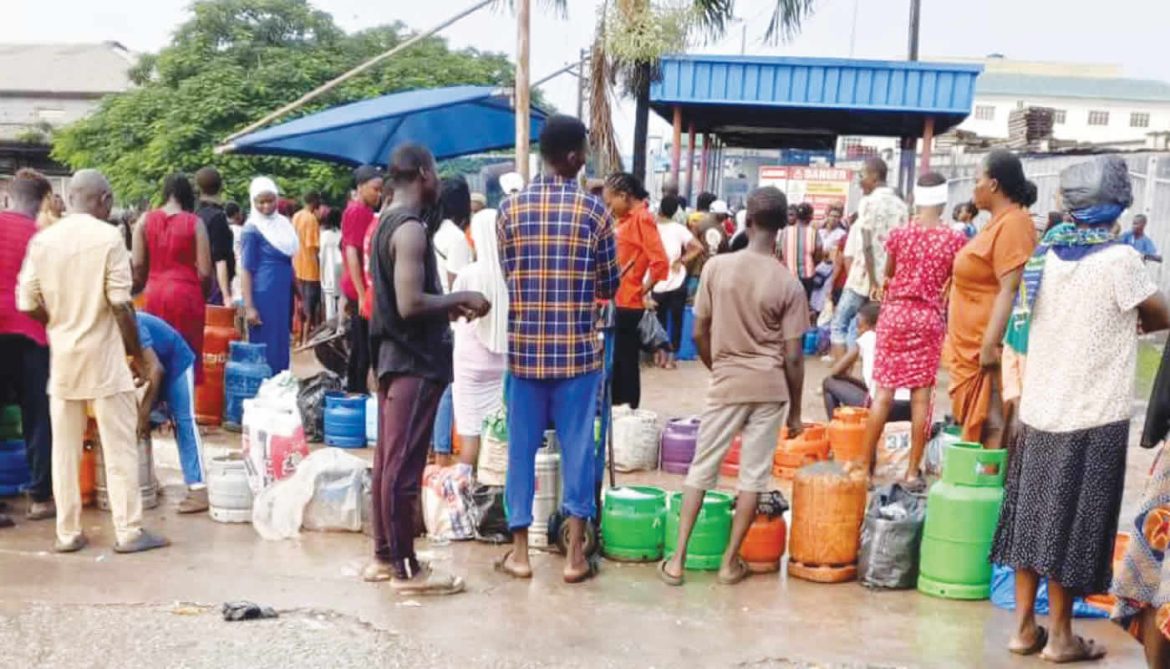The Nigerian Association of Liquefied Petroleum Gas Marketers (NALPGAM) has announced plans to raise the country’s annual Liquefied Petroleum Gas (LPG) supply to six million metric tonnes in the coming years, as part of efforts to deepen the use of cleaner energy across Nigeria.
The outgoing President of NALPGAM, Oladapo Olatunbosun, disclosed this at the association’s 38th Annual General Meeting held in Abuja, where he reviewed the sector’s growth and highlighted future targets for the industry.
Olatunbosun said the country’s LPG consumption had grown remarkably from about 900,000 metric tonnes four years ago to over two million metric tonnes in 2024, attributing the increase to greater investment, stronger collaboration with government agencies, and wider public adoption of gas as a domestic energy source.
“About four years ago, national consumption of LPG was between 900,000 metric tonnes and one million metric tonnes. Today, it has risen to two million metric tonnes, and from the look of things, by the first quarter of next year, LPG consumption will hit three million metric tonnes per annum,” Olatunbosun stated.
He expressed confidence that, with sustained policy support and private sector involvement, achieving six million metric tonnes per annum was realistic under the Decade of Gas Initiative, which aims to make Nigeria a major gas-powered economy.
“Through our collaboration with the Federal Government, we have deepened the future of LPG in Nigeria. We hope to increase supply to six million metric tonnes per annum, which I believe is achievable. By that, we will be able to rub shoulders with countries like Morocco and Egypt, which currently lead LPG supply in Africa,” he said.
Nigeria’s LPG sector has recorded steady growth since the introduction of the National Gas Expansion Programme and the Decade of Gas Initiative in 2021, both designed to accelerate industrialisation and promote cleaner energy adoption.
Despite holding over 200 trillion cubic feet of natural gas reserves and having a population exceeding 200 million, Nigeria’s LPG penetration remains low, especially in rural communities. Data from the Nigerian Midstream and Downstream Petroleum Regulatory Authority (NMDPRA) shows that domestic consumption currently averages 1.9 to 2 million metric tonnes annually, well below the potential market of 5–6 million tonnes.
Olatunbosun acknowledged that price volatility and uneven supply remain major challenges in the sector. However, he expressed optimism that these would soon ease as new gas supplies from Seplat Energy and increased production at the Dangote Refinery enter the market.
“The complaints over high LPG prices will soon be a thing of the past. As domestic supply increases, prices will stabilise nationwide,” he assured.
He urged the incoming NALPGAM leadership to prioritise affordability and expand LPG access to underserved rural areas, stressing that “affordability is critical” to ensure every Nigerian household benefits from cleaner energy.
“People in rural communities face poor access, while city dwellers battle high prices. We must find a balance and ensure gas becomes a truly national fuel,” Olatunbosun said.
He also identified infrastructure and logistics challenges as key barriers to deeper gas penetration, calling for continued investment in pipelines, storage, and distribution networks to support domestic production.
In addition, the outgoing president encouraged operators to leverage technological innovation, including artificial intelligence and digital monitoring tools, to improve safety, prevent product theft, and enhance operational efficiency across the LPG value chain.
“We must confront leakage and theft by adopting digital monitoring tools. Innovation is the future of our business,” he stated, urging young Nigerians to develop tech-based solutions that support gas handling, logistics, and safety.
Reflecting on his four-year tenure, Olatunbosun described his leadership period as one of transformation and resilience, thanking NALPGAM members for their cooperation and commitment.
“It has been an honour to serve this great association. I am proud of what we achieved together. But this progress must continue under the next administration,” he said, adding, “Soldier go, soldier come, barrack remain. The greatness of NALPGAM depends on our collective support and vision.”
The event concluded with the election of new executives who will steer NALPGAM’s affairs for the next four years, continuing efforts to strengthen Nigeria’s transition toward a gas-driven, cleaner energy economy.
